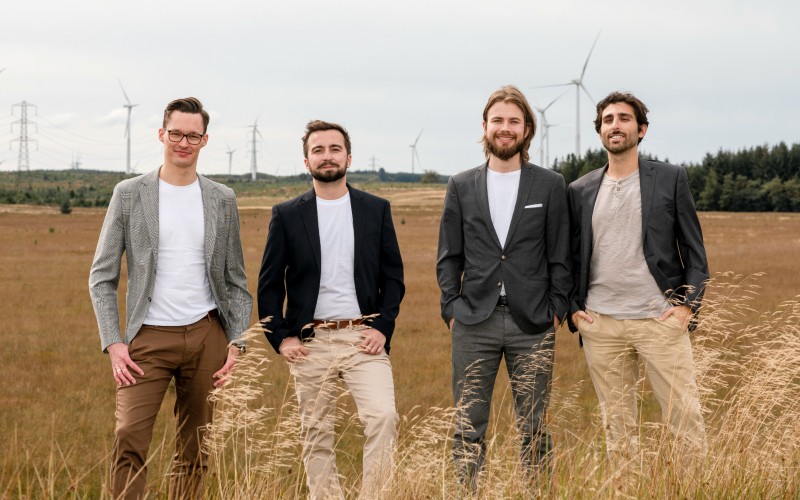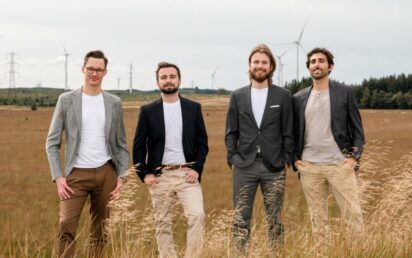Continuum Industries has raised £8.2 million in new funding in a Series A round led by Singular.
The AI company is aiming to accelerate the global energy transition by helping infrastructure developers complete work that used to take 12 months in as little as eight weeks, while minimising impact on the environment and communities.
Previous investors Credo, Playfair, Techstart Ventures and angels including executives from UiPath, Skyscanner and SSE also participated in the round. It aims to double headcount and expand into new territories over the next 12 months.
Demand for energy and utility infrastructure is growing all the time – electricity grids alone are projected to double in size by 2050 to connect critical renewable energy sources – but the planning process is complex and the current pace of development is too slow to meet net zero targets.
Companies must balance a multitude of technical and regulatory considerations, design and planning rules, project-specific environmental, social, technical, and financial considerations, and the competing perspectives and priorities of different stakeholders. The challenge is compounded by a reliance on decades-old technology that is not fit for purpose today.
Authorities on both sides of the Atlantic have recently intervened to encourage the simplification and acceleration of infrastructure development, with the recent UK Electricity Networks Commissioner’s report advocating for automated planning processes and the Biden administration making $300 million in grants available to speed up electricity transmission siting and permitting.
EnviroTech 50 – UK’s most innovative green technology creators
Action is urgently needed, explains Grzegorz Marecki, co-founder and CEO of Continuum Industries.
“If we are going to deliver the energy transition required in time to meet global climate goals, we need to completely rethink worldwide energy infrastructure – transforming what we have, but also building considerably more, and doing so at an unprecedented pace,” he said.
“The best way to do that is to work smarter, not harder – as highlighted by the UK Electricity Networks Commissioner, automated infrastructure planning processes, such as those that we provide, have a big part to play.
“But the impact of technology needn’t be limited to the planning stage – we’re excited to bring its transformative power to developers throughout the development process as we continue to grow with this new funding.”
Continuum’s AI-powered network and linear infrastructure development platform, Optioneer, enables power, utility, and renewables companies to visualise, analyse, and comprehensively assess routing options for power lines, onshore and offshore cables, and pipelines for hydrogen, water, and CO2.
Founded in 2018, Continuum Industries is supporting customers in the UK, the Netherlands, Spain, Italy, and the USA – including National Grid, SSEN Transmission, National Gas Transmission, Fred. Olsen Seawind, and Iberdola Group – with the assessment of thousands of kilometres of assets across large-scale projects.
Optioneer provides a common environment for engineers and environmental specialists to collaborate using AI to condense processes that previously took 12 months to be condensed into just eight weeks. The combination of vast computing power, geospatial data, and human intuition unlocks unique insights throughout projects, from conception to completion.
This includes generating a shortlist of viable routing options from millions of alternatives in just a matter of hours, real-time iteration of designs as new data arises, recording key decisions, and mitigating against unforeseen delays at later stages.
Marecki said: “We have an exciting and important opportunity to accelerate the march of the infrastructure industry into the digital age and make a lasting impact for people and planet.
“Having set out to raise a round in challenging economic conditions, we’re pleased to have found new investors in the shape of Singular – alongside our previous backers – who didn’t just see the potential of our technology, but the urgent need to diverge from traditional approaches to transform the sector, and showed a real hunger to support that change.”
The art of resilience (& climbing Kilimanjaro after a broken elbow)


